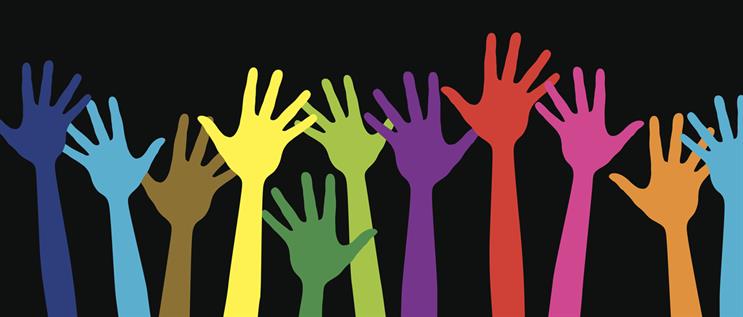If the UK population is becoming more diverse, why do the majority of creative ideas we pitch to our clients so often get decided by a group of middle class white men, rather than a group that accurately reflects the target audience?
To tackle this issue, Daniele Fiandaca, Alex Goat, Laura Jordan-Bambach, Jonathan Akwue, Bejay Melunga, Tolu Farinto, Karen Fraser and myself founded .
The experiment provides practical and relevant actions to drive change specifically for the communications and creative industries.
We offered the following advice actions to businesses dedicated to creating diverse teams:
Create an environment where team members are comfortable being themselves
The teams that fared best were those where individuals felt empowered to be their authentic selves rather than conforming to type, and where ideas won by a democratic vote, instead of by cultural consensus.
The creative process is broken – readdress it
We need to embrace messiness and go beyond using standard decision-making mechanisms. Take the time to explore all ideas, and create strong structures and boundaries for the ideation process, to reap the rewards of truly diverse teams.
Re-train leaders
Question whether the archetypal role of the all-encompassing creative director is still fit for purpose. The experiment pointed less to a Don Draper-esque style of leadership, and more to the skills of empathetic, careful facilitators, capable of listening and creating space for a team to grow and flourish, with guidance.
Implement the ‘Rooney Rule’
Acknowledge that bringing in diverse talent is not a "CSR thing", but is critical to business success. Demand that every new role has a diverse shortlist. Look harder, further and accept that often a round peg in a square hole is a good thing. The experiment showed that true diversity serves creativity by allowing people to be themselves and to draw on their experiences without being judged.
Make your attitudes as accessible as your buildings
14% of the UK identify themselves as having a physical disability – yet how many people in your company are from this community? Even worse, how many companies have not even discussed how you can encourage more people with a disability into your company? This is an issue that isn't receiving the attention it deserves and our industry is falling behind because of it. Let's start the debate and inspire change.
This is not an exercise in industry-bashing but a tool to confront the elephant in the room.
If every leader across the communications industry implemented the recommendations of the report we would build a better communications environment. Teams that reflect the society with which we communicate produce more compelling, engaging work.
If we know that diversity in the workplace leads to better experiences, solutions, and a better world in which to live, what excuse do we have not to change?
Nadya Powell is managing director of Sunshine and a co-founder of the Great British Diversity Experiment


